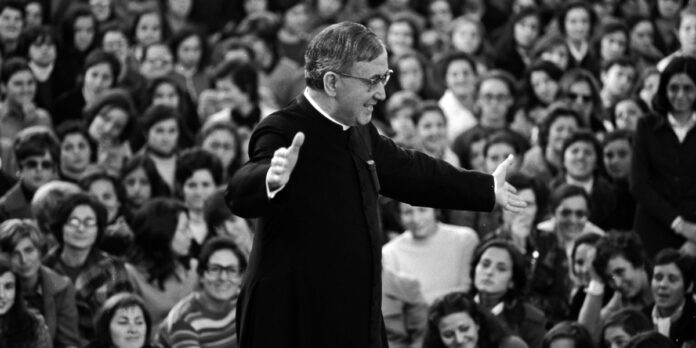Are you a diabetes patient? Surely you have a patron saint who knows all the difficulties of the disease. You can ask his intercession to manage your health issues.
Saint Josemaría Escrivá is the patron saint of diabetes because he himself suffered from type 1 Diabetes.
He was also the founder of Opus Dei. His life highlighted a humble path to holiness in the Catholic Church, teaching that people can become holy by performing their work and daily duties with a Christian spirit.
Josemaría Escrivá was born in Barbastro, Spain, on 9 January, 1902. He had one older sister, Carmen (1899-1957); three younger sisters who died very young; and a younger brother, Santiago (1919-1994). His parents, José and Dolores, brought up their children with a devout Catholic faith.
Due to his father’s failure in the textile business, their family moved to Logroño, where José found other work. It was in Logroño that Josemaría sensed his vocation for the first time. He noticed bare footprints left in the snow by a friar, by seeing that he had a notion that God wanted something from him. But he was unaware that what exactly what.
He thought that he could more easily discover what it was if he became a priest, so he began to prepare for the priesthood, first in Logroño and later in Saragossa. He also studied for a law degree at the University of Saragossa on the advice of his father. After the death of his father, Josemaría turned the head of the family. He was ordained on 28 March 1925, he began his ministry in a rural parish, and afterwards in Saragossa.
In 1927, with the permission of his bishop, Fr. Josemaría moved to Madrid to work on his doctorate in law. It was the day came he was longing for, on 2 October 1928, God showed him clearly the mission he had been hinting to him for several years. He founded Opus Dei. And he worked with all his energies to develop the foundation that God asked of him, while he continued to fulfill the various priestly responsibilities he had at that time. These brought him into daily contact with sickness and poverty in the hospitals and the poor districts of Madrid.
During the time of the Civil War, he exercised his priestly ministry in a clandestine fashion until he was finally able to leave Madrid. Later he became a refugee and at the end of the war in 1939, he returned to Madrid. In the years that followed he gave many retreats to lay people, priests, and members of religious orders. In the same year, 1939, he completed his doctorate in law.
In 1946 he took up residence in Rome. There he obtained a doctorate in theology from the Lateran University and was named consultor to two Vatican Congregations, as well as honorary member of the Pontifical Academy of Theology, and prelate of honor to His Holiness. He died in Rome on June 26, 1975. Thousands of people, including many bishops (a third of all the bishops in the world), requested that the Holy See open his cause of beatification and canonization.
On 17 May, 1992, Pope John Paul II beatified Josemaría Escrivá. He proclaimed him a saint ten years later, on 6 October, 2002, in St. Peter’s Square, in Rome, before a great multitude. In his homily on that occasion, the Pope said: “Following in his footsteps, spread in society the awareness that we are called to holiness, without distinction of race, class, culture or age.”



